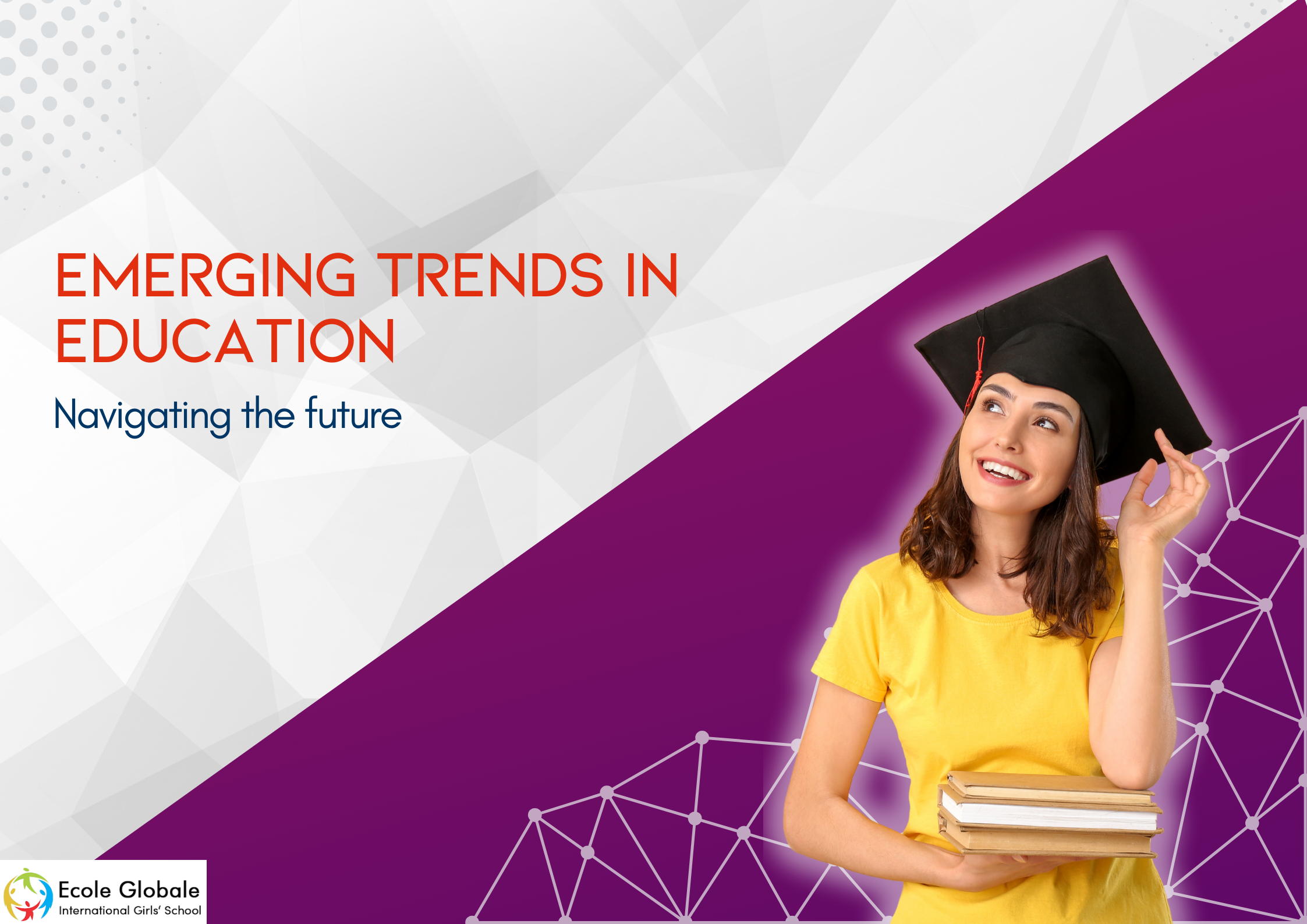The educational landscape is undergoing a significant transformation, marked by six key emerging trends in education that are reshaping how students learn and interact with the world. This comprehensive article, delves into these trends and their profound impact on students.
Emerging trends in education and their impact on students :
The Rise of Technology in Education
In the modern educational sphere, technology has become an integral part, seamlessly blending into students everyday lives. This shift is fundamentally altering the manner in which students engage with educational material and access information.
The advent of virtual classrooms and interactive learning platforms exemplifies this trend, offering a new paradigm in education that transcends traditional methods.
Customized Learning Experiences
The educational system is gradually moving away from a standardized approach to a more personalized learning experience. This emerging trends in education focuses on creating tailored educational paths that cater to the individual needs of each student.
Adaptive learning platforms are at the forefront of this movement, providing a learning environment that is both inclusive and effective.
The Emergence of Online and Blended Learning
Online and blended learning modalities are gaining traction, pushing the boundaries of the conventional classroom setting. This emerging trends in education allows students to transcend geographical limitations and enjoy a more flexible learning schedule.
It opens up opportunities for students to access diverse courses and engage in collaboration with peers from around the world.
Focus on STEM and Coding Education
The importance of STEM (Science, Technology, Engineering, and Mathematics) education is increasingly being recognized and is emerging trends in education.
Incorporating coding into the curriculum is a strategic move to prepare students for future careers in technology-centric industries. This inclusion equips students with essential skills that are crucial in the digital era.
Project-Based Learning Methodology
Project-based learning is an instructional strategy that encourages students to apply their knowledge in real-world contexts, moving away from the traditional focus on memorization is emerging trends in education.
This approach not only deepens understanding but also enhances critical thinking and problem-solving skills, which are vital in today’s world.
Global Citizenship Education
In our globally connected society, educating students to be global citizens is more important than ever. This aspect of education emphasizes the development of cultural awareness, empathy, and teamwork. It aims to equip students with the necessary skills to navigate and address various global challenges.
The Impact on Student Learning

Enhanced Student Engagement:

The use of interactive and technologically advanced teaching methods has led to increased student engagement and participation in the learning process.
Personalized Learning Paths:

By focusing on individual strengths and weaknesses, personalized learning allows students to progress at their own pace, fostering a more effective and tailored learning environment.
Cultivation of Critical Thinking:

The emphasis on project-based learning and STEM subjects is instrumental in developing critical thinking and problem-solving skills, which are essential for success in today’s job market.
Fostering Global Awareness:

Exposure to diverse cultures and perspectives is key in developing global citizenship, enhancing students’ ability to communicate and collaborate across cultural boundaries.
Broader Implications and Future Prospects

The integration of these trends signifies a paradigm shift in education. The move towards technology-enhanced learning environments, personalized education plans, and global citizenship education reflects a broader change in societal values and demands.
As education continues to evolve, it is preparing students not just for the jobs of the future but also for a more interconnected and complex world.
The role of educators in this changing landscape is also evolving. Teachers are now facilitators of learning, guiding students through personalized learning paths and helping them develop critical thinking and problem-solving skills.
The focus is on preparing students to be lifelong learners, capable of adapting to an ever-changing world.
Conclusion
The educational sector is witnessing a transformative phase, with emerging trends in education significantly altering the learning experience. These emerging trends in education are not just reshaping the educational landscape but are also preparing students for a future that is increasingly digital, interconnected, and complex.
As we navigate these changes, the focus remains on equipping students with the skills, knowledge, and mindset needed to thrive in the 21st century.










